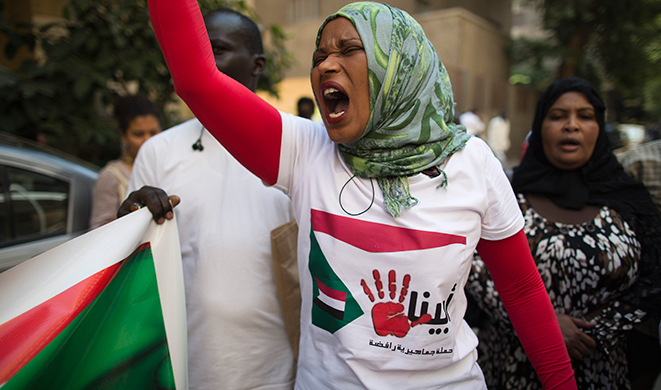
Editor's Note: This op-ed written by Sudan and South Sudan analyst Akshaya Kumar origanally appeared on Think Africa Press.
In a recent African Futures article about the protests that erupted in Sudan this September, Alex de Waal concludes that the "immediate challenge for the opposition is intellectual." In his piece, de Waal contrasts the recent round of protests with the successful 1985 revolution. That comparison of yesterday's revolutionaries with today's activists is both unfair and incomplete.
First, by making no reference to the January 2013 New Dawn Charter or the September 2013 Sudan Change Forces communiqué – two documents that detail specific demands and principles for a change, as agreed to by a broad coalition of opposition forces – the pieces's otherwise comprehensive analysis ignores a key dynamic. These documents are not silver bullets, but they do demonstrate a commitment to forging a unified vision for the proverbial "morning after."
Second, De Waal critiques the opposition’s “tendency to learn lessons from abroad rather than analysing conditions at home.” He suggests they are "borrowing and applying a script derived from a particular narrative of the Arab Spring or even [my organisation] the Enough Project." Increasingly, Sudanese are also emphasising the similarities between the struggle on the country's margins and the situation in the centre. For example, through the work of citizen journalists like 3ayin whose compelling videos highlight violence in South Kordofan and Darfur, information about government attacks on civilians in the periphery has begun to trickle into Khartoum too. This is a huge intellectual victory, no matter whose "script" it is.
In his piece, de Waal also questions the opposition's perceived proximity to the country's armed groups. This, he says, undermines activists’ non-violent protests. But at the same time, de Waal warns that there us "virtually no political coordination between the SRF and civic opposition in Khartoum." Bringing an end to the wars inflaming the periphery through dialogue will be a central element of any comprehensive solution. Through the drafting of the New Dawn Charter, some in civil society have already come together with the Sudan Revolutionary Front. Going forwards, facilitating more avenues for discussing this document, which remains a work in progress, will be critical.
Read the full piece on Think Africa Press.
Photo: Sudanese woman chants slogans against longtime President Omar al-Bashir during a protest in front of the Sudanese embassy in Cairo, Egypt. (AP)

